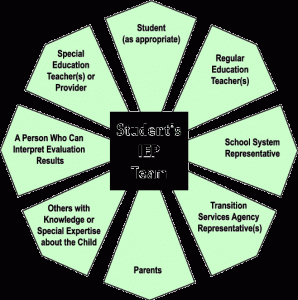After the exhausting ordeal of an Individualized Education Program (IEP) hearing, it’s tempting to hibernate on the couch watching reruns or playing with Pinterest to decompress. Unfortunately, your work is not yet over.
What to Expect During an IEP Hearing
Individualized Education Program (IEP) Legal IssuesWhile a due process hearing for an Individualized Education Program (IEP) is a legal procedure, it is also different from a typical court case. It will not be held in a courtroom. Instead of a judge and jury, a hearing officer is responsible for examining the evidence, hearing testimony, and making a binding decision. The hearing officer may not be employed by the school district – he is a neutral third party.
Navigating the Individualized Education Program (IEP)
Individualized Education Program (IEP) Legal IssuesWhat is the IEP?
The Individualized Education Program is a treatment plan for your child’s speech disorder. It is specially tailored to meet your child’s needs. An IEP is implemented within the public school system in accordance with the Individuals with Disabilities Education Act (IDEA). While it’s not exactly rocket science, navigating the IEP process may sometimes be frustrating. You’ll likely have a great deal of paperwork to review.
What the Individuals with Disabilities Education Act Means For You
Legal IssuesThe Individuals with Disabilities Education Act (IDEA) was signed into law in 1990. It was intended to ensure that all children with a qualifying disability have access to a free, appropriate public education (FAPE). That means that it provides for special education services within the public school system. If your child qualifies under the IDEA, his school must tailor an education program that meets his specific needs.




